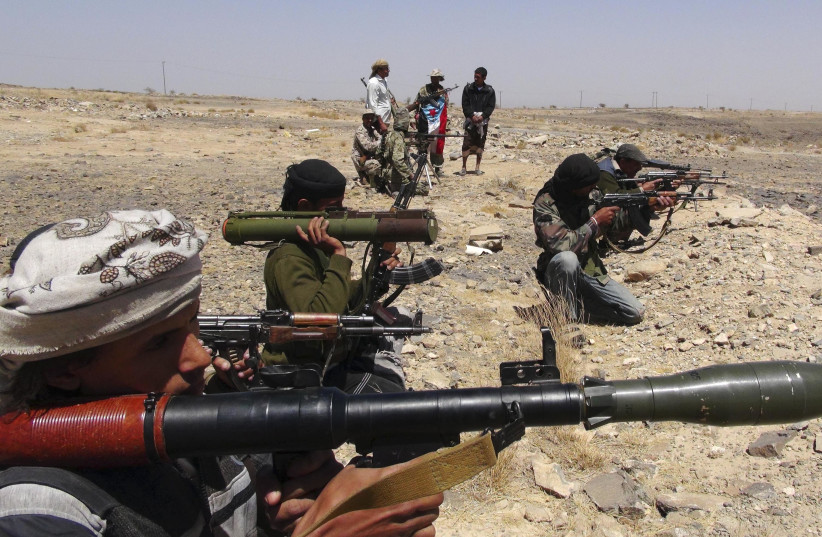The Houthis increasingly act as if they control the Red Sea. More than eight months after the US-led Operation Prosperity Guardian began, the Houthis continue to attack ships. They go further than attacks now, they also say who can and cannot help the ships in distress.
The recent attack on the Sounion is an example of how the Houthis have expanded their attacks. The ship now poses a major environmental concern because it is carrying oil. “The Sounion came under a barrage of projectiles last week, after the Iran-backed group targeted the crude oil tanker as part of a months-long campaign on ships along the maritime route,” CNN noted last week.
Now the Houthis have increased their attacks again. Houthi Spokesman Yahya Saree claimed on Saturday that the terrorist group attacked an Israeli-bound ship. “He said that Libera-flagged Groton ship was targeted in the Gulf of Aden because its owner company violated a Yemeni ban on ships entering ports in the occupied Palestinian territories,” Iran’s IRNA reported. Iran backs the Houthis and uses them to try to blockade Israel and take over the Red Sea. This is an unprecedented move.
Stakeholder countries such as Saudi Arabia and Egypt should be doing more to secure the waterway, but they are concerned they will not be backed by the West. This leaves the region open to Iran’s predatory behavior. Iran is backed by Russia and China and has had naval drills with them over the last several years. Thus, the Houthi campaign is not in a vacuum, and it is not really about Israel. This is about Iran making a play to control the region.

The Houthis naval, UAV, and missile forces participated in the operation, and “the ship was hit accurately and directly,” the Houthis spokesperson said over the weekend. The vessel was first targeted on August 3, he added. “The spokesman further noted that the Yemeni armed forces [Houthis] will continue their maritime operations in support of the Palestinian resistance in the Gaza Strip and the West Bank until Israel stops its aggression and lifts its siege on Gaza.”
West seemingly unable to stop the Houthis
According to IRNA and the United Kingdom Maritime Trade Operations (UKMTO), a new report was issued about an attack on a vessel on September 2. “In a statement on Monday, UKMTO announced that two unidentified projectiles hit a merchant vessel, 70 nautical miles northwest of Yemen’s port of Saleef,” IRNA reported. “A third explosion occurred nearby, but no casualties were reported. Separately, an investigation is underway for an incident 58 nautical miles west of Hodeidah,” the report said.
Meanwhile, on August 31, US Central Command said, “In the past 24 hours, US Central Command (USCENTCOM) forces successfully destroyed one Iranian-backed Houthi uncrewed aerial vehicle (UAV) and one uncrewed surface vessel (USV) in Houthi-controlled areas of Yemen.” The US report said that “it was determined these systems presented a clear and imminent threat to US and coalition forces, and merchant vessels in the region. This action was taken to protect freedom of navigation and make international waters safer and more secure for US, coalition, and merchant vessels.”
However, it appears that the US and Western countries have largely been unable to stop the Houthi attacks, which are occurring almost every day. The Red Sea and areas near it are increasingly in Houthi control. They appear to control access to ships that are damaged such as the Sounion. This is not how international waters are supposed to operate. It used to be policy to keep these waters safe.
However, Iran and the Houthis have shown they can upend centuries of the US, UK, and others securing the world’s waterways. This is part of a play by Russia and China to upend world order. They want a multi-polar world. Therefore, their goal is to work with Iran and proxy groups such as the Houthis to spread chaos and weaken the US and Western ability to set global norms.
